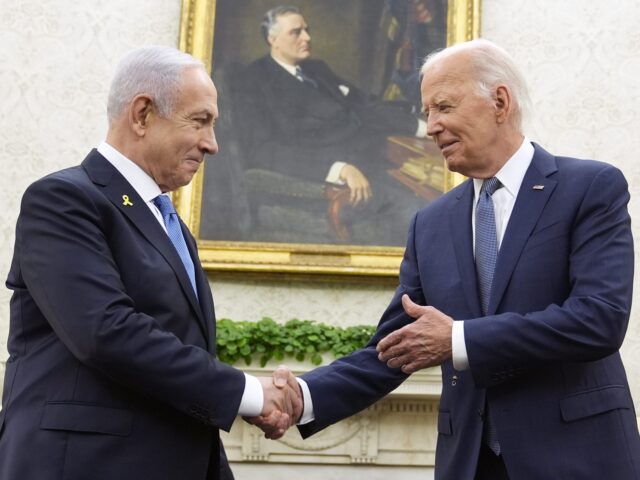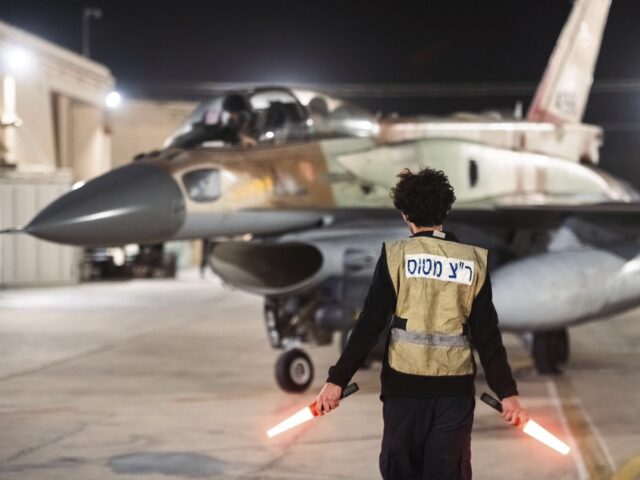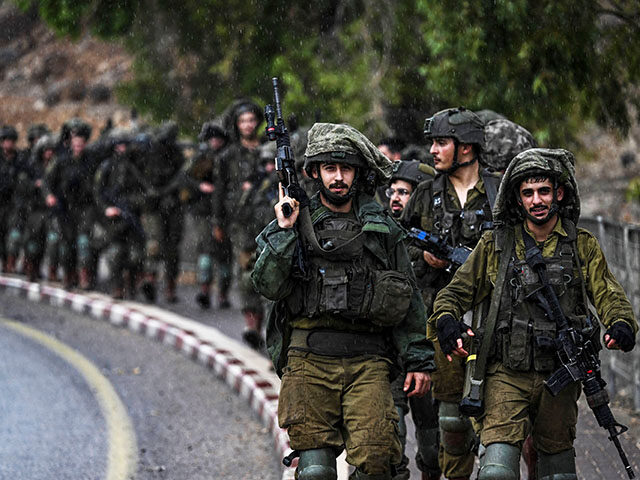An Israeli official said on Monday that a potential ceasefire with Lebanon would mean only a temporary “cessation of hostilities,” not an end to Israel’s war against the terrorists of Hezbollah.
Both the Israel Defense Forces (IDF) and Hezbollah escalated their operations on Tuesday, putting the ceasefire deal in doubt.
“We don’t know how long it will last. It could be a month, it could be a year,” the Israeli official told the Times of Israel (TOI), referring to what would ostensibly be a 60-day ceasefire agreement brokered by the United States and France.
WATCH — Joel Pollak’s Lesson from Israel: Embrace Life:
Lebanese officials said they have agreed to the terms of the ceasefire and expected it to be announced by President Joe Biden and French President Emmanuel Macron on Tuesday.
The Israeli parliament is scheduled to debate, and possibly vote on, the deal on Tuesday, but the Lebanese parliament is not scheduled to be in session again until Wednesday morning.
The Biden White House would say only that “we’re close,” but “nothing is done until everything is done.”

President Joe Biden meets with Israeli Prime Minister Benjamin Netanyahu in the Oval Office of the White House in Washington on July 25, 2024. (AP Photo/Susan Walsh)
Neither the IDF nor Hezbollah appears to be done fighting. Israeli forces hit several targets in south Lebanon on Monday and Tuesday, reportedly killing a senior Hezbollah commander. Hezbollah responded with more rocket attacks against Israeli civilians, causing multiple injuries.
The skeptical Israeli official who spoke to TOI said one of the provisions of the deal would allow the IDF to resume operations against Hezbollah immediately if the Iran-backed Lebanese terrorists launched more attacks — and the official was convinced that clause would be invoked long before the 60-day “cessation of hostilities” was up.
Some members of Israeli Prime Minister Benjamin Netanyahu’s governing coalition said even the resumed-operations clause was not good enough and Israel should accept no ceasefire until Hezbollah has been eliminated. Many seemed resigned to give the “ceasefire” a try under heavy U.S. and U.N. pressure, but viewed the agreement as a farce that would quickly collapse under Hezbollah aggression.
WATCH — Never Again: Jewish Law Student in Texas Describes Surviving October 7 in Israel:
Residents of the northern Israeli districts frequently struck by Hezbollah rockets were even more cynical, saying they felt like “sheep” being led to the slaughterhouse.
“Our government is going to sign a very irresponsible agreement that is only a replay of the same agreement,” northern Israel resident Nizan Zeevi told CNN on Monday, referring to the agreement that ended the Israel-Hezbollah war of 2006 — and conspicuously failed to get Hezbollah terrorists out of southern Lebanon.
“It’s my duty to my children to make sure that there is no chance for another October 7,” Zeevi said.
Israel critics of the deal expressed little confidence that a supposedly upgraded U.S.-led international peacekeeping force in southern Lebanon would fare any better at controlling Hezbollah than the largely ineffective United Nations Interim Force in Lebanon (UNIFIL).

In this photo provided by the Israeli army, armed Israeli Air Force planes depart from an unknown location to attack Iran on October 26, 2024. (Israeli Army via AP)
Israeli Defense Minister Israel Katz met with U.N. officials on Tuesday and warned them UNIFIL, or any successor operation, must act more decisively to block Hezbollah from acquiring or producing weapons if the ceasefire goes into effect.
“If you don’t act, we will handle it with great force,” said Katz.
Lebanese officials, for their part, said the ceasefire deal did not offer enough assurances that Israel would not swiftly resume strikes on southern Lebanon.
“The experience with Netanyahu does not inspire confidence in this matter. The most important point for Lebanon is to ensure that there is nothing that allows Israel to freely attack us,” a Lebanese official told The National on Tuesday.

COMMENTS
Please let us know if you're having issues with commenting.